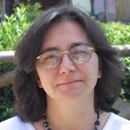Advisory Board and Editors Biophysics

Yoshinori Marunaka
Prof. Marunaka is the President and the Representative Director, Director of Clinical, and Director of Medical Research Institute, Kyoto Industrial Health Association; Professor, Research Organization of Science and Technology, Ritsumeikan University; Professor Emeritus, Kyoto Prefectural University of Medicine; Former President, Physiological Society of Japan. Former President, International Society of Cancer Metabolism. MD (1979), PhD (1985), Kyoto Prefectural University of Medicine; National License of Physician and Surgeon, Japan (1979). He was Professor and Chairperson, Departments of Molecular Cell Physiology and Bio-Ionomics, Kyoto Prefectural University of Medicine, Japan, and Director and Professor, Japan Institute for Food Education and Health, St. Agnes’ University. He was awarded “Vebleo Nanomedicine Scientist Award” (Sweden), “Marco Polo della Scienza Italiana” (Italy), The Premier's Research Excellence Award (Canada), Scholar Award (Medical Research Council of Canada) and Research Award from National Kidney Foundation of USA. He has obtained more than 60 research grants, published more than 270 peer reviewed articles, and provided more than 30 invited plenary lectures at international congresses and research conferences. h-index 47, i10-index 190, Citation 7498

Joanna Moraczewska
Professor at Kazimierz Wielki University in Bydogszcz, Faculty of Biological Sciences, Poland. Head of the Department of Biochemistry and Cell Biology. Our research concentrates on molecular mechanisms of actin filament regulation in muscle and non-muscle cells.

Ludmilla A Morozova-Roche
Professor of Medical Biophysics, Department of Medical Biochemistry and Biophysics, Umea University, Sweden. Editor of journal "Diseases".

Claudia Muhle-Goll
Group leader biological NMR spectroscopy at the Institute of Biological Interfaces (IBG4), Karlsruhe Institute of Technology
Previous: Emmy-Noether-Fellow at Max-Planck Institute for Medical Research Heidelberg and visiting Team Leader at the European Moleular Biology Lab, Heidelberg.

Daniel Horacio Murgida
Daniel H. Murgida, PhD, is a Professor of Chemistry at the University of Buenos Aires, Faculty of Exact and Natural Sciences, and Principal Investigator of the National Research Council, CONICET, Argentina. His laboratory investigates structural, dynamics and mechanistic aspects of natural and chimeric electron transferring proteins and redox enzymes, with basic and applied purposes. This includes a variety of heme and copper metalloproteins that are investigated using spectroscopic, electrochemical and spectroelectrochemical methods in combination with protein engineering and computational simulations.

Ho Leung Ng
Principal Scientist, Atomwise. Adjunct associate professor of biochemistry and biophysics at Kansas State University. Research in computational/AI and structure-based drug design, biophotonics, machine learning for chemistry and drug discovery, protein crystallography.

Qing Nie
Qing Nie is a Professor of Mathematics and Biomedical Engineering at University of California, Irvine. Dr. Nie's primary research areas include systems biology, stem cells, developmental biology, regulatory networks, stochastic dynamics, and computational mathematics.

Krishna Dev Oruganty
I can best describe myself as a simulation biologist. I am interested in simulating life processes at multiple scales. From the atomic scale to understand protein function to cellular or systems scale to understand physiological processes. My main tool is the computer which I use to analyze, understand and predict biology. Secondary tools are in vitro biochemistry and biophysics experiments that I use to validate my predictions.

Emanuele Paci
Professor at University of Bologna. From 2004 to 2021 Associate Professor in Computational Biophysics at University of Leeds. From 2001 to 2004, Oberassistent at the Department of Biochemistry, University of Zurich.

Isabel M Palacios
University at Madrid, Spain; PhD at EMBL Germany; Postdoc at the Gurdon Institute, Cambridge, UK; Group Leader as a Royal Society University Research Fellow and currently as a University Senior Research Fellow, Cambridge, UK. Also a Fellow of St John's College, Cambridge, UK

Tomas Perez-Acle
Biologist, PhD in Biotechnology. Director of the Centro BASAL Ciencia & Vida. Head Researcher of the Computational Biology Lab (dLab) at Fundacion Ciencia & Vida, Santiago, Chile. Research Professor at Facultad de Ingeniería y Tecnología, Universidad San Sebastián.

Roberta Pierattelli
Roberta Pierattelli graduated in Chemistry at the University of Florence and received a Ph.D. in Chemistry in 1995. After a postdoctoral year at the University of Southampton, she was appointed at the University of Florence. Since 2017 she is Full Professor of Chemistry. Her research interests are mainly related to applications of NMR spectroscopy to the study of the structure and function of proteins and their interactions.

